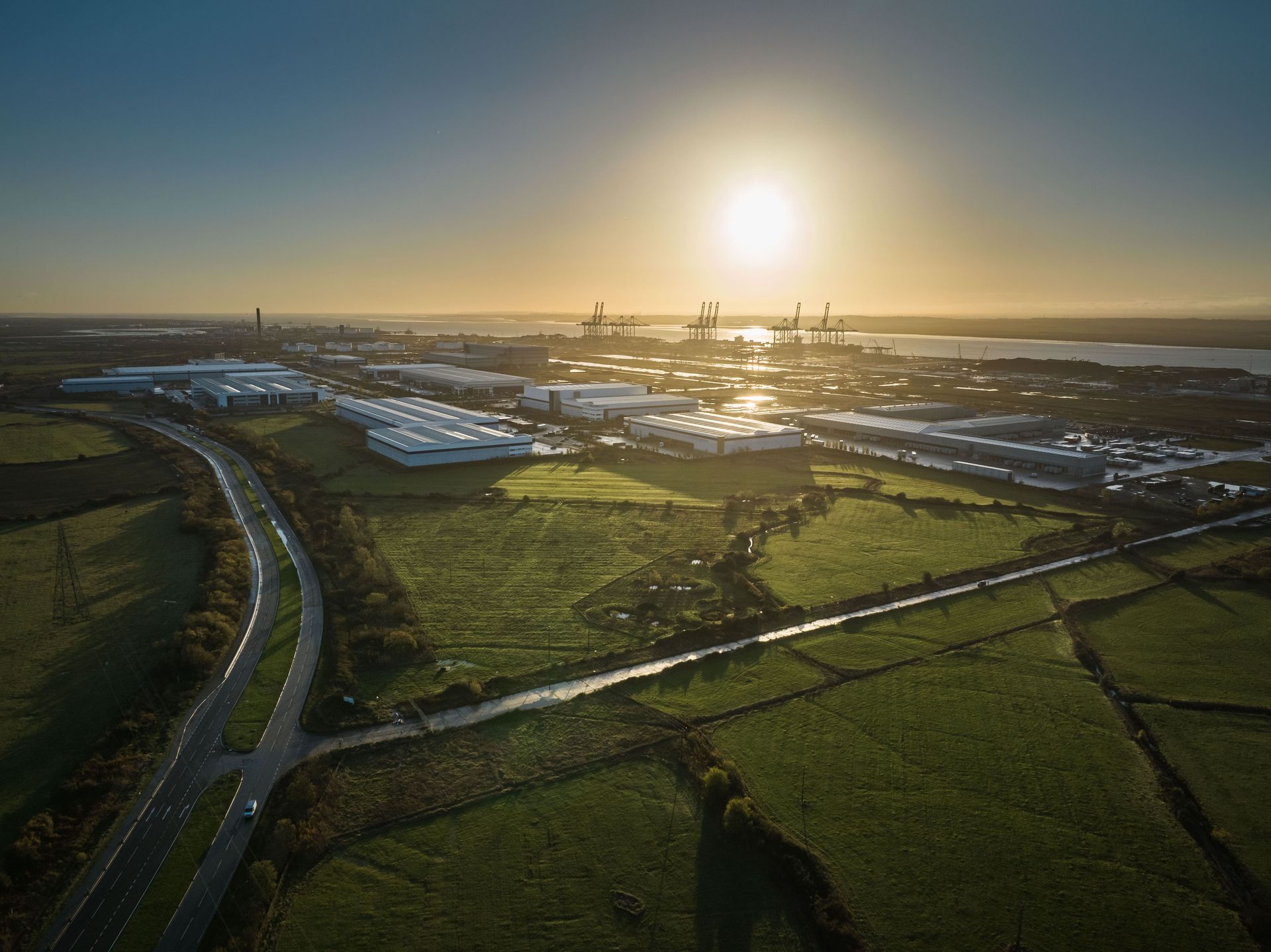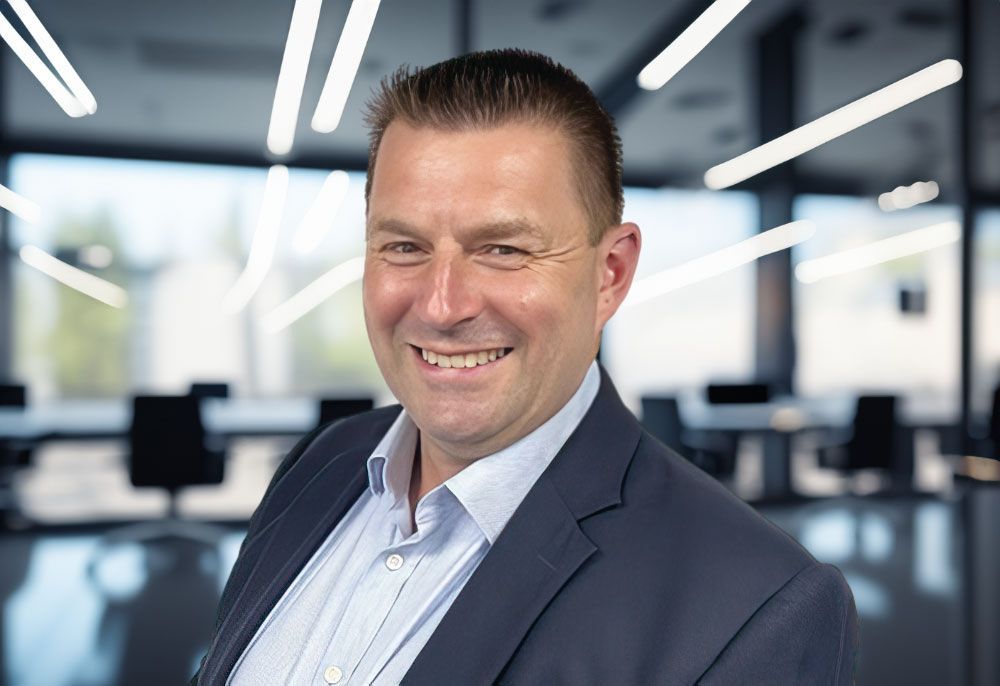Case Study: The Environmental Potential of Thames Freeport and Special Economic Zones
Thames Freeport is a unique initiative designed to stimulate trade and innovation and transform the lives of people in its region, leveraging global connectivity to over 130 ports in 65 countries. Occupying a strategic position with intermodal capabilities across river, rail, and road, Thames Freeport has recognised its opportunity to achieve social good, and has demonstrated an active commitment to advancing decarbonisation and fostering a circular economy. Thames Freeport is emerging as a hub for clean energy technologies, advanced logistics, and value-added manufacturing.
Special Economic Zones (SEZs) such as the Thames Freeport are uniquely positioned to drive decarbonisation. By clustering industries and research institutions, SEZs enable collaboration on sustainable practices and green technology development. This concentration accelerates the adoption of renewable energy sources, smart grids, and circular economy practices.

The Thames Freeport: A Model for Green Transformation
The Thames Freeport is a great example of how an SEZ can lead decarbonisation efforts, aligning economic growth with environmental sustainability. To progress these activities, Thames Freeport has engaged edenseven, a part of the Cambridge Management Consulting group, renowned for developing and delivering successful data-driven sustainability strategies.
Recently, edenseven analysed and reported on the progress being made by the FTSE 250 companies toward net zero, and collated recommendations based on areas for improvement in those companies. Thames Freeport’s own journey to decarbonisation is aligned with these recommendations, actively pursuing strategies to achieve net-zero across all three scopes of carbon emissions.
Thames Freeport is establishing a clear emissions baseline through a comprehensive carbon accounting and management system. Such platforms provide insights for compliance and strategy formulation, enabling organisations to model emissions trajectories, and adapt project parameters for maximum impact.
Equipped with this knowledge, Scope 1 emissions, primarily diesel emissions within the port’s boundaries, are a key focus for Thames Freeport, as advised by edenseven’s recommendations. The Freeport is implementing programs to register all assets and integrate GPS vehicle tracking technology for detailed asset utilisation analysis. This data-driven approach will inform an effective electrification strategy, leading to cost savings for existing businesses and creating a foundation for low-carbon solutions for new entrants.
However, as Scope 1 emissions are addressed through electrification, the demand of electricity will raise the focus on Scope 2 which involves electricity usage. To meet these needs, Thames Freeport is leveraging its renewable energy assets and creating an energy model to analyse power and capacity requirements. This model will guide innovative energy sourcing, including corporate power purchase agreements, on-site generation, load balancing, and energy storage solutions, such as vehicle battery integration.
Scope 3 emissions which are indirect greenhouse gas emissions that occur in a supply chain but not necessarily produced by the company itself is often the largest proportion of emissions for organisations, are a critical focus. The edenseven FTSE 250 report identified that 86% of emissions from FTSE 250 companies are associated with Scope 3.
In line with edenseven’s recommendations, Thames Freeport is helping businesses to detail their supply chain emissions using edenseven’s Supplier Emissions Reduction Approach (SERA). Additionally, the Freeport is analysing logistics and broader transportation impacts, including employee commuting, with the support of advanced technologies such as a 5G network. These insights will enable the development of a comprehensive decarbonisation strategy for transportation.
By enabling the consolidation of supply chains and reducing transportation distances, the Freeport minimises carbon emissions associated with freight. The location of London Gateway and Port of Tilbury, for instance, reduces the need for road transportation, cutting fuel use and emissions.
Beyond businesses, the Thames Freeport focuses on creating a sustainable future for the local community. Investments in green jobs and skills development will empower residents to participate in the decarbonisation journey.
These actions demonstrate Thames Freeport’s proactive intent to make significant strides toward net zero. With plans to continue this momentum into 2025, Thames Freeport, Cambridge Management Consulting’s, and edenseven’s combined expertise in port management, innovation, and sustainability is attracting forward-thinking businesses, driving economic growth, creating high-quality jobs, and delivering environmental benefits. This integrated approach positions Thames Freeport as a leader in sustainable industrial development, setting a benchmark for decarbonisation and circular economy practices.
Special Economic Zones like the Thames Freeport are vital in driving decarbonisation. By serving as hubs for green innovation, they catalyse sustainable development and align economic growth with climate goals. Thames Freeport exemplifies this potential by integrating low-carbon practices, fostering green industries, and contributing to the UK’s ambition for a net-zero economy. Through its leadership in sustainable logistics and community-focused initiatives, the Thames Freeport is a beacon for how SEZs can transform areas into low-carbon, thriving regions.
Contact - AI at the Edge article
Subscribe to our insights
Blog Subscribe












